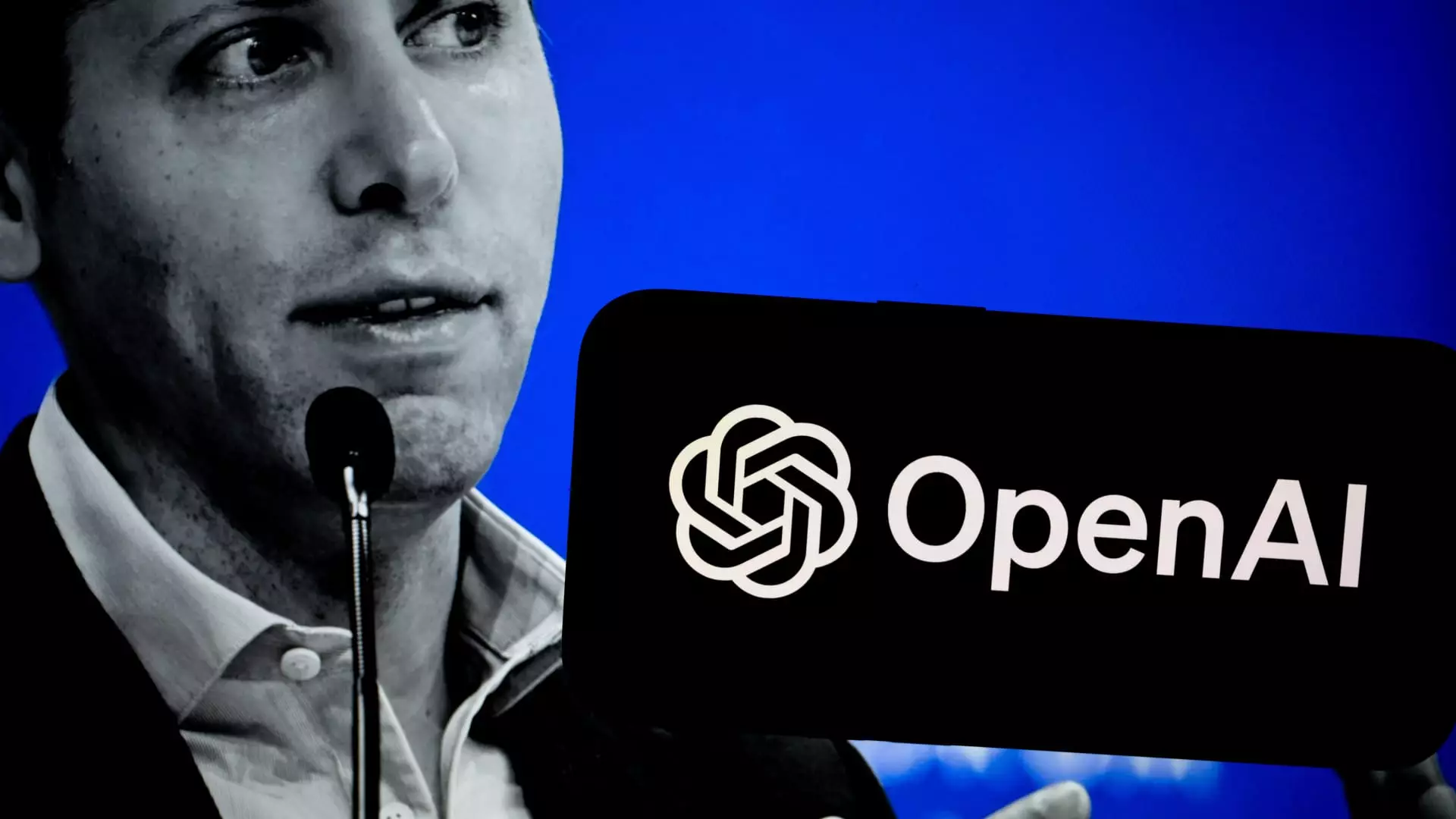OpenAI has found itself in the spotlight yet again as CEO Sam Altman addressed concerns regarding his potential equity stake in the company during a recent all-hands meeting. As the co-founder of a company that has rapidly grown to be a cornerstone of the artificial intelligence landscape, Altman’s role and compensation have become focal points amidst changes in leadership and shifts in company structure.
According to reports from sources who attended the meeting, Altman firmly denied any plans to obtain a “giant equity stake” in OpenAI, asserting that such claims are unfounded. While his statement might quell rumors, it raises questions about investor confidence and expectations. Sarrah Friar, OpenAI’s finance chief, echoed Altman’s sentiments, further emphasizing that concerns about his equity position have been voiced by investors who are keenly aware of the competitive landscape in which OpenAI operates.
The board, as articulated by Chairman Bret Taylor in a subsequent CNBC statement, has contemplated the implications of compensating Altman with equity. However, he clarified that no specific proposals have been discussed at this time. The lack of definite plans surrounding Altman’s equity can be interpreted as a strategic choice to maintain a clear vision for the company’s future, especially as it navigates the complexities of a rapidly evolving industry.
OpenAI may also undergo significant structural changes, with discussions taking place regarding a shift to a for-profit model. Sources indicate that while the non-profit segment is expected to persist independently, this transition could redefine the company’s operational dynamics. The potential move signifies an increasing need for substantial investments that align with OpenAI’s ambitious growth targets, particularly in light of its market valuation, which is projected to exceed $150 billion.
While the restructuring concept may raise eyebrows, especially considering past political turmoil within the organization, Altman expressed optimism about the transition. His hope is that it facilitates renewed strength and direction for the company. The challenge lies in ensuring that such shifts do not alienate employees or partners who have been fundamentally integral to OpenAI’s journey thus far.
Executive Departures and Future Leadership
Adding to the narrative of change is the recent exodus of key executives, including Chief Technology Officer Mira Murati and other prominent members of the leadership team. Murati, who has played a significant role at OpenAI for over six years, indicated a desire to explore new opportunities. Her decision, along with those of research chief Bob McGrew and research vice president Barret Zoph, underscores a period of transition that may be tied to the aforementioned discussions about the company’s direction.
Altman’s remarks in various public forums suggest that the leadership changes are not necessarily linked to the restructuring plans. He characterized these departures as part of a natural progression wherein individuals embrace new chapters in their lives, a notion that reflects both the positive and negative aspects of high-stakes corporate environments. Nonetheless, the convergence of restructuring talks and executive departures could signify a tumultuous period for OpenAI, drawing attention to its internal culture and staff morale.
Significance of Investor Confidence
As OpenAI prepares to pursue an additional funding round that could attract significant investments from businesses like Thrive Capital and Tiger Global, the importance of maintaining investor confidence cannot be overstated. With Microsoft as a notable backer and the company pursuing an ambitious $1 billion funding target, any potential missteps in leadership transitions or strategic direction could have far-reaching implications.
Moreover, OpenAI’s reputation has been stir with controversies relating to rapid growth and concerns about operational safety. Despite the innovative leaps made since the launch of ChatGPT and the company’s hyper-growth trajectory, many in the tech community are apprehensive about whether the pace of progress is sustainable.
As OpenAI enters this new phase, it finds itself at the crossroads of substantial restructuring and internal upheaval. The leadership’s focus on aligning compensation structures and adjusting to investor expectations reflects a broader need for adaptability in an increasingly competitive environment. While Altman’s steady hand aims to guide OpenAI toward success, much hinges on fostering an inclusive and stable atmosphere amid the shifts.
The emerging narrative is one of resilience and ambition, but it will take thoughtful navigation to ensure that OpenAI’s pioneering goals remain aligned with sustainable operations and a cohesive internal culture. Ultimately, the effectiveness of these changes will determine whether OpenAI can uphold its prominent role in the rapidly evolving landscape of artificial intelligence.


Leave a Reply